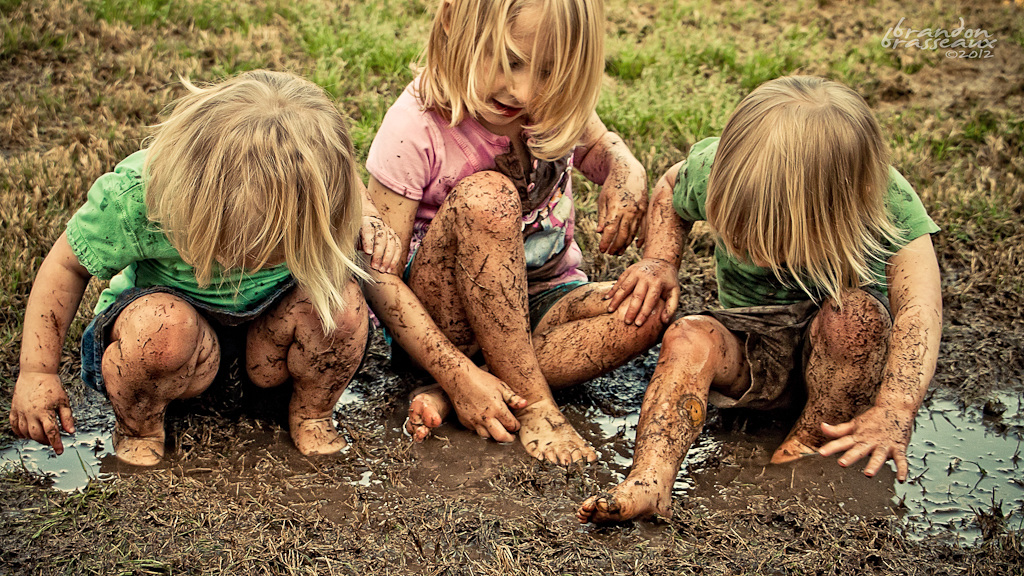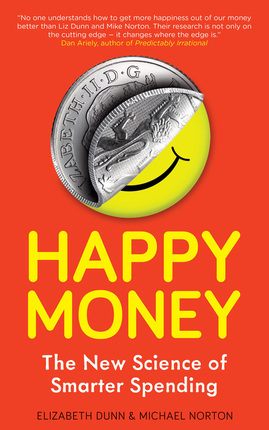|
Read any good books lately? I have: Peggy Ornstein's New York Times bestselling Cinderella Ate My Daughter: Dispatches From the Front Lines of the New Girlie-Girl Culture.
After finishing a chapter about Mattel and the American Girl Dolls, I was particularly struck by one of Ornstein's observations: The simplicity of American Girl is expensive, while the finery of Princess comes cheap... But both Princess and American Girl promote shopping as the path to intimacy between mothers and daughters -- as an expression, even for five-year-olds, of female identity. Shopping as the path to intimacy between mothers and daughters? That makes me sad. Because for all of our talk about empowering young girls and strong female role models and getting girls excited about STEM and building self-esteem and body confidence... We sure aren't doing much for our daughters when the pinnacle of female bonding is shopping. In fact, our focus on consumerism is probably hurting them. Here's why: 1. There are a million more interesting and engaging activities you could be sharing with your daughter. You want your daughter to be fierce and independent and strong. You tell her she can be anything she wants to be. And then... you take her shopping. Why don't you take her to a hip hop class? Why don't you take her to the creek? Why don't you ride bikes or skateboards or go rock climbing? Why don't you go to a science museum? Or... why don't you just stay at home? You don't need to "take" her anywhere! Go to the backyard together and invent your own game! Put together your own talent show! Practice a song on the piano or guitar together! Or have an incredible discussion. Ask questions. Teach her words like "experiment" and "hypothesis" -- and use them every day! After all, as I wrote in The Best Way to Give Your Child a Creative, Entrepreneurial Mind (Hint: It Has NOTHING To Do With Flashcards), This gets them thinking -- and teaches them to test, iterate, and try again. It shows them that many problems have more than one solution. (And, by praising their effort rather than their ability, you reinforce a learning/growth mindset over a fixed intelligence mindset.)
And, believe it or not, this is exactly the kind of discussion kids' brains are wired for. Don't believe me? Try it yourself -- then watch the way her whole face lights up as she begins thinking about how to answer your questions and test her ideas.
Remember: your job isn't to answer their questions. It is to help them answer their own questions. You can do this through follow-up questions, sequence words ("What is the first thing you need to do? Then what? Then what?"), goal setting ("What do you want to test and why?" "How will you know when you are halfway there?" "What will you do if something goes wrong?") and providing general support. After all -- what do you think your child is going to be grateful for when she grows up? What do you think she's going to remember when you're dead? That time you took her to the mall and bought her more new clothes and toys... or the time you took her rollerblading? The way you used to whip out your credit card... or the amazingly engaging discussions that continue to shape the way she thinks as an adult?
Remember: young minds are wired pretty differently from old ones. Kids under twelve actually have over seven times more neural connections than you do -- meaning that early learning experiences matter.
And it's well-documented that the most profound learning happens not through classroom learning, but through play. 2. Playfulness isn't a trait -- it's a skill. Shopping could very well stunt your daughter's playfulness and leisure skill development. Trust me -- I'm the expert on this. Or, at the very least, I did my master's thesis, "The Happy Talent: A Prototype of the Playful Adult," on this. Why did I decide to study this? Because I went to Stanford. Which, among many things, is extremely well-endowed. Stanford spends millions of dollars every year making sure its students always have something fun to do -- whether that means free music lessons; whitewater kayaking lessons and expeditions (a one-year membership to the whitewater kayaking club, which includes all boat, wetsuit, helmet, PFD, paddle, etc. etc. etc. rentals, costs $30/year); introduction to diving/synchronized swimming/water polo/wrestling/gymnastics/basketball/golf/etc. sports classes -- taught on DI facilities by DI coaches; free ballroom, salsa, swing, hip hop, ballet, tap, and you-name-it dance lessons; residential programming, including dorm ski and beach trips; and a million other things. And yet! Many students seemed to spend their time doing homework, watching Netflix and going to frat parties -- all the while complaining that "There's nothing to do on campus," or "Frat parties suck, but what else is happening this weekend?" Clearly there was a huge difference between the opportunities for fun and recreation that were actually available, and the students' ability to recognize them. Is that the future you want for your daughter? Especially considering that underdeveloped leisure skills are associated with pretty much every possible bad thing: depression, anxiety, muscle aches, stomach problems, substance abuse, eating disorders and loneliness, to name a few. No, right? So stop taking your daughter shopping as a bonding activity. Be more creative! Be more playful! Shopping, like video games and watching movies, is a form of passive entertainment. Unless you are deeply engaging with the design, materials and products, you are simply showing up and "being" entertained by displays and things you can buy. After all, in the words of Peggy Ornstein, "You don't do $500 worth of merchandise. You buy it." A good alternative to shopping with your daughter is, well -- anything. Anything where you and your daughter will be entertaining yourselves, rather than being entertained. If you really want to drive the message home, remind your daughter, "Boring people lead boring lives." My mom used to tell me this every single time I ever complained about being bored -- and, admittedly, it was very frustrating to hear. But guess what? I ended up developing some of the best playfulness and leisure skills of anyone I know. I love traveling -- but a trip to the local Safeway can be just as fun and exciting for me as the colorful, open-air markets in Peru. Even a boring old routine is exciting for me, because I learned early on that "boredom" is a choice. Making better choices now -- picking engaging activities and encouraging your daughter to constantly discover and invent ways to entertain herself -- will help her experience a lifetime of joy and wonder. See also: How iPads Kill Happiness and Creativity.
3. Consumerism isn't just bad for the environment -- it's bad for girls' mental health.
One reason parents seem to love shopping for their daughters is, according to historian Gary Cross, is because, "Children's wide-eyed excitement over the products we buy them pierces through our own boredom as adults... It makes us feel again." (Gary Cross is great. If you haven't, check out Packaged Pleasures: How Technology and Marketing Revolutionized Desire or Men to Boys: The Making of Modern Immaturity or Kids' Stuff: Toys and the Changing World of American Childhood. It's fascinating stuff.) That may be true -- though inevitably, young children eventually become disenchanted with the things we buy them. Nevertheless, fostering a sense of consumerism at such a young age could have negative consequences for your children. Especially your daughters. As I wrote in 6 Bizarre, Depressing and Impressive Facts About Disney Princesses, no studies to date have proven that pink, girlie-girl princess stuff is directly harmful to young girls. What I didn't say, however, is that there are plenty of studies that show that both consumerism and stereotypical feminine values can cause mental health problems in young and teenage girls. For example, research shows that the more a girl is exposed to mainstream media, the more likely she is to say that being "pretty" and "sexy" is extremely important to her. College and high school girls who have more traditional views of femininity -- especially those that emphasize beauty (and the corresponding clothes, makeup, and other products) -- are less ambitious than their counterparts and more likely to be depressed. They are less likely to enjoy sex -- or insist that partners use condoms. And! According to psychotherapist Graham Music, who drew on nearly 600 academic resources to publish his recent book The Good Life: Wellbeing and the New Science of Altruism, Selfishness and Immorality, People who care more about status symbols, what they look like or being famous, have more mental-health problems, and if you are exposed to those values, you are more likely to become unhappy. People who place greater value on being with the people they care about and doing things they believe in, tend to be healthier, both physically and mentally. But consumerism is addictive… Once self-interest wins, it’s hard to get the other side back.
When you "promote shopping as the path to intimacy between mothers and daughters -- as an expression, even for five-year-olds, of female identity," you are setting your daughter up to be a consumer.
When you praise and encourage her to have a "passion for fashion" and to love shopping, you reinforce a stereotypically feminine behavior, along with the corresponding attitudes about her values and value. There are a million other activities you could do together that will make her fit, strong, and smart. Shopping will probably not do any of those things. Don't shoot the messenger. I'm just talking about science. 4. Money can buy happiness -- but not if you spend it at the mall. Need another book recommendation? How about Happy Money: The New Science of Smarter Spending, by psychologists Elizabeth Dunn and Michael Norton:
One of the key discoveries in this book is that, wishy washy adages be darned, money absolutely can buy happiness.
But NOT if you spend it on things. If you want to buy happiness, you need to focus on spending money on experiences -- like ice skating, ceramics, bumper cars and ant farms. It sounds so obvious -- but it's not. Dunn and Norton's research shows that people are terrifically awful at spending their money in a way that makes them happy. Mostly because they've learned to spend it on things. So instead of taking your daughter out to buy things, and giving her the idea that things will make her happy and fortify relationships... teach her that there is a better way to spend both her time and money. Teach her the science of happy spending while helping her develop leisure skills, social skills, and memories she will cherish for a lifetime. *** Now, Peggy Orstein's observation was just that: an observation. I don't know how representative it is of all moms and all daughters. Maybe most moms are actually super adventurous and playful, and engage in all kinds of cool activities with their daughters. Maybe most moms would rather build a pillow-and-blanket fort than take a trip to the mall. But for at least some moms, shopping is the funnest activity they do with their daughters -- the way they bond and express their femininity. This is limiting to the girls' mind, body and imagination. I know moms have it rough -- at any given moment, they probably have ten times more on their plate than most dads. But, with a little bit of thought, your primary mother-daughter can be so much more. And who knows? You might even manage to take your own breath away. Here's some inspiration to get you started:
Teaching girls to use their body to enjoy music and movement.
I love this because it shows girls that you don't need a man to lift you up -- your mom can do it, too. Girls can be anything!
Way too cute!
This was a fun one to watch! Even though these women aren't hardcore ballers like I am (:P), I love that the daughter is this amazingly creative video editor who comes up with various challenges for her and her mom to do in this movie. So cool!
Now we've got some mother-daughter parkour lessons...
As well as just setting up your own parkour course in the backyard:
How much do you love this mom? I hope her daughter inherits her body confidence and silliness!
You don't have to be a homeschooler to have similar experiences with your daughter! You just have to be curious, creative an playful. Remind her -- and yourself! -- that anything is possible.

0 Comments
Leave a Reply. |
About the Author

Eva is a content specialist with a passion for play, travel... and a little bit of girl power. Read more >
Want to support The Happy Talent? CLICK HERE!
Or Find me on Patreon!
What's Popular on The Happy Talent:
Trending in Dating and Relationships:
What's Popular in Science: Playfulness and Leisure Skills:
Popular in Psychology and Social Skills:
Categories
All
|































 RSS Feed
RSS Feed